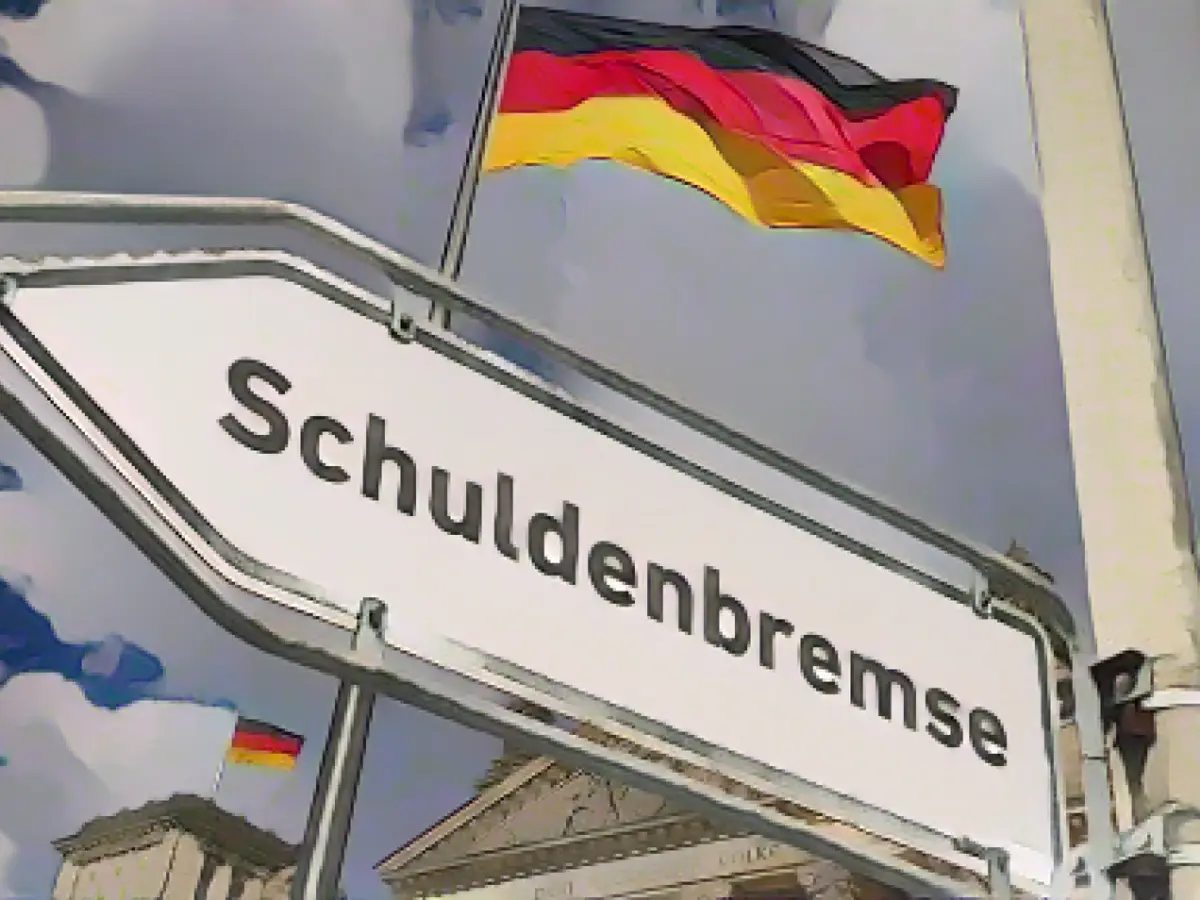Dispute over fiscal rule - What exactly is this debt brake? And why does it exist at all?
The SPD and Greens want to redesign it - and have economic experts and even CDU state premiers on their side. The FDP does not want to touch it - and has CDU leader Friedrich Merz in its camp: the debt brake.
Ever since the Federal Constitutional Court declared the 2021 supplementary budget of the traffic light coalition to be unconstitutional, the fiscal rule has been on everyone's lips again. Now the debate is about how to plug the 60 billion hole that the decision from Karlsruhe has torn in the federal government's financial plan: by respecting or reforming the debt brake?
But what is actually being fought over so passionately? An explanation:
The debt brake in Germany obliges the state to operate economically and avoid new borrowing. Article 109, paragraph 3 of the Basic Law states: "The budgets of the federal government and the federal states must be balanced without revenue from borrowing." This means that the state may only spend as much money as it earns.
While the federal states have not been allowed to incur any new debt at all since 2020, the law provides the federal government with a certain amount of leeway. Article 115 grants it structural new borrowing of up to 0.35% of gross domestic product (GDP) per year, i.e. independent of the economic situation. Accordingly, in 2022, for example, the federal government would have been allowed to take on around 13 billion euros in additional debt based on the GDP of around 3.88 trillion euros at the time. In addition, cyclical deviations are possible, but these must be compensated for. This means that in bad economic times, the permitted net borrowing is increased and reduced to the same extent in good times.
Debt brake provides exceptions for crises
An exception is also intended to ensure the federal government's ability to act in times of crisis. For example, the upper credit limits can be exceeded "in the event of natural disasters or extraordinary emergencies that are beyond the control of the state and significantly affect the state's financial situation", provided that the Bundestag decides this by a simple majority and a repayment plan is submitted.
The debt brake was introduced in 2009 under the then Chancellor Angela Merkel(CDU) and her Finance Minister Peer Steinbrück (SPD). In the midst of the global financial and economic crisis at the time, the law was intended to stabilize the budget situation of the federal and state governments in the long term. In addition, the Grand Coalition used the regulation to implement the demand for budgetary discipline laid down in the Treaty establishing the European Community (EC) and articulated primarily by Germany. Article 104 of the EC Treaty begins with the sentence: "Member States shall avoid excessive government deficits."
Old arguments are being dug up again
The introduction of the debt brake was preceded by passionate debates. Among others, the then opposition Greens and the Left Party were strictly against it. They argued that the state was restricting its own ability to act too much with the fiscal rule. Those in favor, on the other hand, pointed out that the state would have to spend more and more money on interest as its debts grew. This would result in even greater restrictions and burden generations of children and grandchildren.
This debate has now flared up again. Those calling for legislative reform believe that important investments in infrastructure and future-oriented technologies are being jeopardized by the debt limit. In their view, dilapidated schools or bridges and a worsening climate crisis, for example, are also a burden that will be left to future generations. Defenders of the debt brake, on the other hand, warn against over-indebtedness on the part of the state and advocate spending cuts to close the budget gap.
However, a short-term reform of the debt brake is unlikely in any case, as this would require a change to the Basic Law. However, this would require a two-thirds majority of supporters in the Bundestag and Bundesrat, and there is currently no such majority.
Lesen Sie auch:
- The FDP, while aligned with CDU leader Friedrich Merz, opposes the SPD and Greens' plans to redesign the debt brake in Germany.
- The Federal Constitutional Court's decision to declare the traffic light coalition's 2021 supplementary budget unconstitutional has sparked a renewed debate about the debt brake and its role in the federal government's budget.
- Introduced in 2009 by then-Chancellor Angela Merkel (CDU) and Finance Minister Peer Steinbrück (SPD), the debt brake is a fiscal rule that obliges the state to operate economically and avoid new borrowing.
- The traffic light coalition's current challenge is plugging a 60 billion hole ripped in the federal government's financial plan due to the court's decision, with the debate centered on whether to respect or reform the debt brake.
- The FDP and Friedrich Merz argue against reforming the debt brake, contending that dilapidated schools, bridges, and future generational burdens may arise from over-indebtedness, while others believe that important investments are being jeopardized by the debt limit.
Source: www.stern.de








